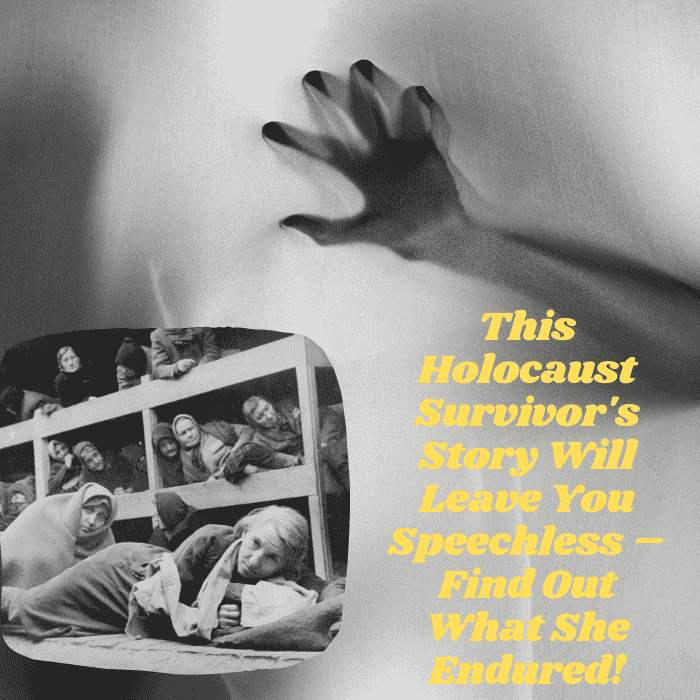
The Holocaust is one of the darkest chapters in human history. It’s a period marked by unspeakable horror, loss, and unimaginable pain. Yet, even in the midst of such destruction, there are stories of survival—stories that remind us of the resilience of the human spirit.
Meet Miriam, a Holocaust survivor whose story is a testament to the strength of humanity in the face of extreme adversity. Born in Poland in 1929, Miriam was just a young girl when the Nazis invaded her country. She remembers the day like it was yesterday—the sounds of sirens, the screams of her neighbors, and the terrifying sight of soldiers marching through her town.
But it wasn’t just the immediate violence of the invasion that shattered Miriam’s life—it was the slow, agonizing process of losing everything. “In one day, my family went from having a home and a future to living in fear, hiding in plain sight,” Miriam recalls with tears in her eyes.
Her family was forced into the ghetto, where food was scarce, and disease was rampant. Yet, even in such desperate conditions, Miriam found ways to survive. She sneaked out in the dead of night to collect scraps of food from the street, trading whatever she could find for something that could keep her family alive for one more day.
But as the war raged on, Miriam’s world grew darker. In 1942, she and her family were transported to Auschwitz, one of the most notorious concentration camps in history. Miriam was separated from her parents upon arrival and never saw them again.
Life in the camp was a daily struggle for survival. Miriam remembers the constant fear, the cold, the hunger, and the cruelty of the guards. Yet, despite the dehumanizing conditions, Miriam held onto a sliver of hope. She found strength in the kindness of fellow prisoners—small acts of compassion that kept her going, even when all seemed lost.
After months of unimaginable suffering, Miriam was liberated by the Allies in 1945. But her journey didn’t end there. The pain of losing her family, the trauma of the camps, and the haunting memories stayed with her for years.
“The hardest part was not just surviving, but learning to live again,” Miriam reflects. For many years, she struggled to find a place in a world that had been irrevocably changed. Yet, through it all, she found a way to heal—by sharing her story.
Sharing her story became Miriam’s way of honoring the memory of those who didn’t survive and teaching future generations the importance of remembering. “It’s not just about telling people what happened,” she says. “It’s about ensuring that we never forget, that we never allow this kind of hatred to take root again.”
Miriam’s story is just one of many, but it’s an important one—a story of survival, resilience, and the indomitable strength of the human spirit. As the last generation of survivors grows older, it becomes all the more urgent to listen to these stories, to share them, and to learn from them.
Remembering the past is not just a way of honoring those who suffered; it is a way of ensuring that such atrocities are never repeated. Miriam’s story, though filled with heartache, is also one of hope—a hope that through understanding and compassion, we can build a world where such horrors are never allowed to happen again.
